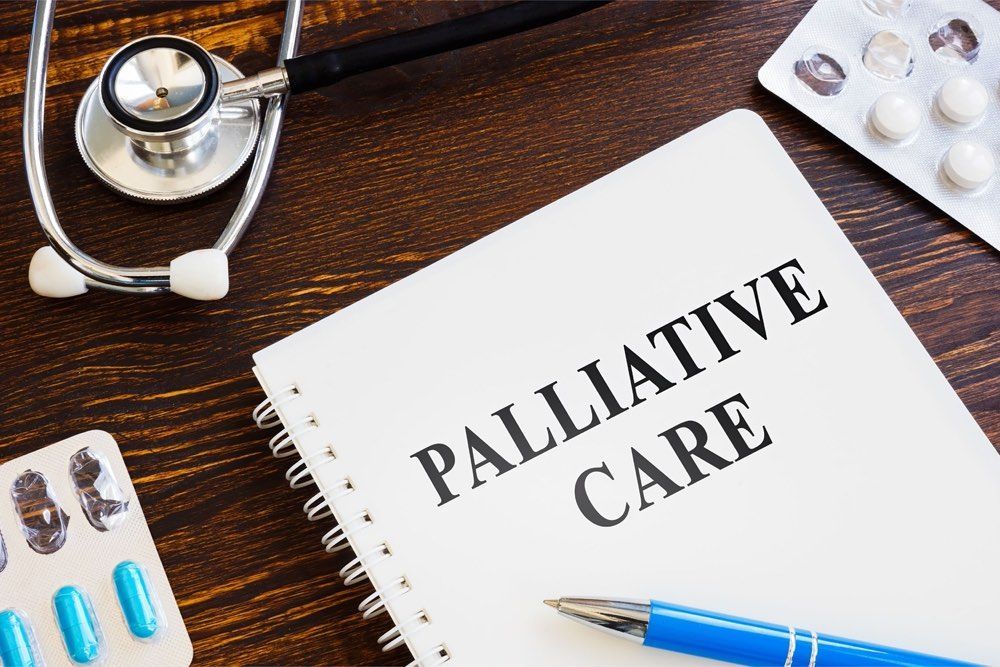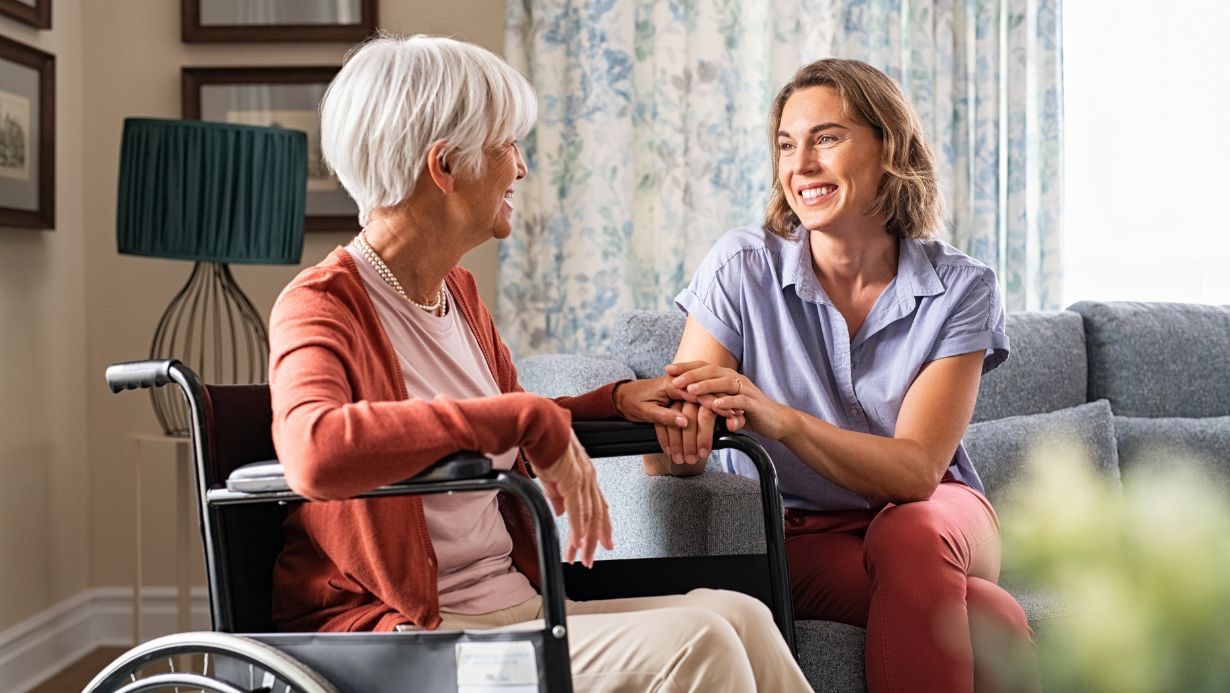What is Palliative Care?
Palliative care can benefit people with serious illnesses and their families. Unfortunately, many misconceptions exist, and it is crucial to understand that it does not replace in-home care.
Contrary to popular belief, palliative care doesn't mean you're giving up. Instead, it means you have an additional team of professionals to help you make decisions, manage symptoms, coordinate your care, and more.
What is Palliative Care?
The Mayo Clinic explains, "Palliative care is specialized medical care that focuses on providing relief from pain and other symptoms of a serious illness. It also can help you cope with side effects from medical treatments."
A 2010 New England Journal of Medicine study found that "lung cancer patients receiving early palliative care had less depression, improved quality of life, and survived 2.7 months longer."
Palliative care is available to anyone, regardless of age, who has a serious or life-threatening illness, such as cancer, dementia, Parkinson's disease, or other serious illness. Palliative care is in addition to other treatments, and it helps you and your family navigate your illness physically, mentally, emotionally, and spiritually.
The main components of palliative care include care coordination, management of symptoms (pain, depression, sleeping issues, fatigue, constipation, loss of appetite, nausea, etc.), helping patients make decisions, navigating tough conversations, and spiritual support.
With palliative care, an interdisciplinary team of experts—such as doctors, nurses, social workers, chaplains, and other trained specialists—works with you, your family, and other healthcare providers to provide comfort, alleviate suffering, and improve your quality of life. This team of experts understands the symptoms, pain, stress, and other issues related to your illness.
"Palliative care improves the quality of life of patients and that of their families who are facing challenges associated with life-threatening illness, whether physical, psychological, social or spiritual," the World Health Organization (WHO) explains. It has also been shown to improve the quality of life of caregivers.
According to WHO, approximately 56.8 million people worldwide need palliative care annually. However, only about 14% of those people receive it.
Hospice Vs. Palliative Care
Both hospice and palliative care address a patient's physical, social, emotional, and spiritual needs. Hospice care is for patients of any age with a prognosis of six months or less, and a cure is not a viable option. That can include individuals with Alzheimer's, ALS, cancer, stroke, liver disease, or any other terminal illness.
Hospice care is NOT focused on curative therapies or medical interventions to prolong life. Often, hospice includes palliative care; however, palliative care is not restricted to terminal patients.
How Do You Get Palliative Care?
If you or a loved one is experiencing a serious illness and believe palliative care may help, speak to your doctor. You can also take this quiz to help you determine if it's right for you, or search the Palliative Care Provider Directory to find out what is available near you. Most insurance plans, Medicare and Medicaid, will cover all or part of palliative care.
Contact Us for In-Home Care
Comforting Home Care by Phoebe's in-home care specialists are non-medical; therefore, we do not provide palliative care. However, we often complement palliative care by providing in-home care services, such as personal care, companionship, light housekeeping, etc., that palliative care does not address.
If you or a loved one is facing a serious illness, call us today at 610-625-5206 or connect with us online to receive a no-obligation consultation with a licensed nurse in the comfort of your home.
We foster caring, engaged relationships that bring comfort and peace of mind hourly around the clock on the days you choose, up to 24 hours, seven days a week.
More From Our Blog

Berks County Office
Comforting Home Care by Phoebe
1 Reading Dr
Wernersville, PA 19565
Phone: 610-625-5206
Lehigh Valley Office
Comforting Home Care by Phoebe
3400 Bath Pike Ste 101
Bethlehem, PA 18017
Phone: 610-625-5600
The region's premier home care provider in Berks, Bucks, Lehigh, and Northampton Counties, including Allentown, Bath, Bethlehem, Easton, Emmaus, Fleetwood, Fogelsville, Hamburg, Hellertown, Hereford, Kutztown, Laurys Station, Leesport, Macungie, Mertztown, Mohnton, Nazareth, New Tripoli, Northampton, Oley, Orefield, Quakertown, Reading, Richlandtown, Robesonia, Schnecksville, Shillington, Shoemakersville. Sinking Spring, Temple, Topton, Trexlertown, Wernersville, Whitehall, Womelsdorf, Wyomissing, & Zionsville,
© Copyright 2023 | All Rights Reserved | Comforting Home Care by Phoebe
Website by Power Marketing International











